Apr 20, 2023
Revolutionising Healthcare: Six Effective Process Improvement Strategies
The healthcare industry is constantly evolving, and effective process improvement strategies are crucial for healthcare providers to ensure optimal patient care. Below, we’ll discuss various approaches leveraging AI, IA, and machine learning that healthcare providers can adopt to transform the delivery of care in the emergency department to improve customer satisfaction and outcomes and profits and business outcomes.
By implementing these healthcare process examples, providers can ensure that their digital transformation puts them on the right track.
1. Transform the Delivery of Care in the Emergency Department:
A multi-faceted approach is needed to improve emergency department care delivery and address overcrowding while enhancing the patient experience.
Data-driven decision-making is crucial to effectively allocate resources and optimise workflows, staffing, and leadership expectations. AI algorithms can help by predicting patient acuity as well as trends and patterns in patient care. It can also help formulate strategies to allocate and use resources efficiently, such as staffing and bed availability.
AI-powered chatbots can also assist in triaging patients, directing them to appropriate care based on their symptoms and urgency. This can reduce wait times and help ensure patients receive timely care.
Combined, AI and machine learning will help providers make data-driven decisions to optimise workflows, staffing patterns, and leadership expectations to improve patient experience and outcomes.
2. Adopt Lean Methodologies for Healthcare Improvement
Adopting lean methodologies is an effective way to drive healthcare improvement by reducing waste and improving care quality. Lean principles can be applied to healthcare delivery to optimise processes and eliminate inefficiencies.
AI, IA, and machine learning can help healthcare providers implement lean principles by automating processes, predicting patient demand, and identifying areas of inefficiency. This will help reduce unnecessary testing or redundant paperwork and wastefully deploying resources.
Similarly, AI-powered chatbots and virtual assistants can assist with administrative tasks, freeing staff to focus on patient care.
Implementing machine learning will help create a continuous learning loop, which is critical to implementing lean methodologies in healthcare. This involves using clinical data to evaluate processes and identify best practices to incorporate them into clinical workflows.
3. Improve Hospital Patient Flow with Machine Learning
Hospitals can improve patient flow and optimise operations by leveraging machine learning and AI-powered predictive models. AI algorithms can predict patient demand and optimise patient flow across different departments by analysing patient arrival times, diagnoses, and treatments.
Combined with machine learning, care providers will be better able to streamline their operations and efficiently deploy resources in line with patient trends. This helps to reduce patient wait times, minimise staff overtime, and improve patient outcomes and satisfaction.
AI & Machine learning can also be used to identify bottlenecks in the patient flow process and suggest changes to relieve them. This results in smoother care delivery and improved patient experiences.
4. Prevent Medication Errors
Preventing medication errors is critical to avoid significant financial and patient safety implications of harmful medication errors. A data-driven approach is vital to effectively monitor, prevent, and mitigate adverse drug events (ADEs).
AI, for example, can quickly and accurately cross-check medication to detect and prevent potential negative drug interactions or dosing errors. They can also combine this data with a complete analysis of a patient’s medical history for personalised recommendations or warnings. Prevention is the best cure, allowing providers to take a more proactive approach to avoid these errors.
NLP (natural language processing) can also be combined with IA to capture medication data accurately and automatically without the risk of human data entry errors. Or to provide intelligent, automated medication advice.
All-in-all, these technologies can help providers uphold medication safety protocols, educate patients on medication use, and engage in ongoing training for staff to maintain best practices.
5. Reduce Unwanted Variation in Healthcare
Healthcare providers can develop strategies to reduce unwanted variation by identifying areas where inconsistency impacts patient outcomes. In turn, this will increase efficiency, minimise waste, and improve patient outcomes.
Machine learning algorithms can analyse clinical data and identify patterns of variation in care delivery, enabling healthcare providers to develop targeted interventions to reduce unwanted variation. Using rule-based AI/ML models trained on best practices, organisations can more easily enforce quality management systems and standardise processes.
Using these same insights, AI-powered chatbots and virtual assistants can assist with administrative tasks and deliver patient advice in a consistent and standardised manner.
This enables providers to measure outcomes, continuously improve processes, and maintain long-term consistency.
6. Prioritise Process Measures Over Outcome Measures
As a rule of thumb, providers must prioritise tracking process measures instead of solely focusing on outcome measures. This approach lets providers identify the root causes of healthcare system failures and develop strategies to improve service quality and patient outcomes.
Process measures provide valuable insights into how healthcare organisations operate and help ensure that they consistently deliver high-quality care. Prioritising them allows healthcare providers to detect areas for improvement, standardise processes, and reduce unwanted variation.
This can increase efficiency, decrease errors, and improve patient satisfaction. Furthermore, healthcare providers can assess the effectiveness of process improvement initiatives, identify opportunities for further improvement, and continuously refine processes to deliver optimal patient care.
Conclusion
Health care process improvement is critical to delivering high-quality care and improving patient outcomes today. However, it can be difficult to scale, manage, and implement Improvements unilaterally. By leveraging AI, IA, and machine learning technologies, healthcare providers can automate inefficient manual processes and low-level customer interactions, predict or forecast patient trends, personalise care, and gain greater visibility & insight into their processes. Not to mention augment the abilities and knowledge of carers with the power of AI and data analytics.
This will help lead to better outcomes for both the business and patients.


